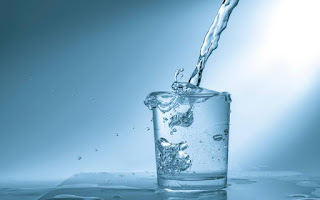The Hidden Dangers of Water Intoxication: When Hydration Goes Too Far
Introduction:
Water is often celebrated as a cornerstone of a healthy lifestyle, playing a vital role in various bodily functions. However, as with many things, moderation is key. This article delves into the dangers of water intoxication, scientifically known as hyponatremia, shedding light on the potential risks associated with excessive water consumption.
The Basics of Water Intoxication:
Understanding water intoxication begins with recognizing the intricate balance of electrolytes within our bodies, particularly sodium. When an individual drinks an overwhelming amount of water, the kidneys can struggle to excrete the surplus. This imbalance dilutes sodium levels in the blood, leading to cellular swelling and potentially dire consequences.
The Risks and Symptoms:
Excessive water intake can manifest in various symptoms, starting with mild discomfort like nausea, headaches, and confusion. As the condition progresses, more severe issues such as seizures, coma, and, in extreme cases, death can occur. Athletes, drawn into the belief that more water is always better, are particularly susceptible due to prolonged, intense physical activity.
Prevention and Awareness:
Preventing water intoxication involves a nuanced understanding of the delicate balance between hydration and electrolyte levels. Recognizing the body's signals, such as thirst, and avoiding the compulsion to force excessive water consumption are crucial steps. Athletes, in particular, need to be mindful of their unique hydration needs, considering both water and electrolyte replenishment.
The Role of Electrolytes:
Electrolytes, including sodium, potassium, and chloride, are essential for maintaining the body's fluid balance. While water alone can hydrate, consuming it in copious amounts can disrupt this balance. Sports drinks, formulated with electrolytes, can be a beneficial alternative, especially during strenuous physical activities, helping maintain proper hydration without risking overhydration.
Education and Personal Responsibility:
Raising awareness about the dangers of water intoxication is paramount to prevention. Individuals must understand the significance of responsible water intake and recognize that hydration needs can vary. Seeking advice from healthcare professionals, especially for those with underlying health conditions or taking medications affecting water retention, is a critical step in responsible hydration.
Educational initiatives should target a wide audience, emphasizing the dangers of excessive water consumption and promoting a nuanced understanding of hydration. This includes debunking common myths about water intake and instilling a sense of responsibility in individuals to make informed choices regarding their hydration habits.
Individual Factors and Vulnerabilities:
Certain factors can increase an individual’s vulnerability to water intoxication. Underlying health conditions, medications, and variations in kidney function can affect how the body handles excess water. Individuals with conditions like heart failure or kidney problems may be more susceptible, highlighting the importance of personalized hydration plans and medical advice.
Monitoring Hydration during Physical Activities:
Athletes and individuals engaging in strenuous physical activities should adopt a proactive approach to monitor their hydration status. Techniques like regular weight checks before and after exercise sessions can provide insights into fluid losses. Additionally, paying attention to urine color and volume can serve as practical indicators of hydration levels.
Hydration Guidelines and Recommendations:
Establishing clear hydration guidelines, tailored to individual needs and circumstances, is crucial. These guidelines should consider factors such as age, climate, activity levels, and overall health. A one-size-fits-all approach to hydration may inadvertently contribute to water intoxication risks, reinforcing the importance of personalized recommendations.
Psychological Aspects of Hydration:
Beyond the physiological factors, the psychology of hydration is equally crucial. Emotional stress, anxiety, or societal pressure can contribute to excessive water consumption. Encouraging a healthy relationship with water, rooted in self-awareness and mental well-being, is vital for preventing water intoxication.
Chronic Overhydration and Long-Term Effects:
While acute water intoxication can have immediate consequences, chronic overhydration may lead to more subtle yet impactful long-term effects. Prolonged disturbances in electrolyte balance can contribute to issues like chronic fatigue, cognitive impairment, and even kidney damage. Recognizing the potential long-term ramifications emphasizes the importance of maintaining a balanced approach to hydration.
Role of Healthcare Professionals:
In promoting responsible hydration, the role of healthcare professionals cannot be overstated. Regular check-ups, especially for individuals with pre-existing conditions, enable professionals to assess hydration needs and provide personalized guidance. Collaboration between individuals and healthcare providers is key to navigating the complexities of hydration in diverse health contexts.
Technological Solutions:
Advancements in wearable technology offer innovative solutions for monitoring hydration levels. Smart devices that track sweat composition, coupled with hydration apps, empower individuals to make informed decisions about their fluid intake. Integrating technology into hydration practices enhances real-time awareness and contributes to personalized strategies.
Environmental Considerations:
Environmental factors, such as temperature and humidity, significantly impact hydration requirements. Understanding how these variables influence fluid needs is crucial for adapting hydration practices to diverse settings. Educating individuals about the dynamic relationship between environmental conditions and hydration fosters adaptability in their approach.
Cultural Perspectives on Hydration:
Cultural beliefs and practices around hydration can shape individuals’ attitudes toward water intake. Addressing cultural perspectives is essential in promoting a comprehensive understanding of hydration, ensuring that awareness campaigns and educational initiatives resonate with diverse populations.
:
In the pursuit of health, it's crucial to approach hydration with a balanced perspective. Water intoxication, a serious and potentially life-threatening condition, emphasizes the importance of mindful water consumption. By staying informed, listening to our bodies, and fostering a healthier relationship with hydration, we can avoid the pitfalls of excessive water intake and prioritize overall well-being.









Comments